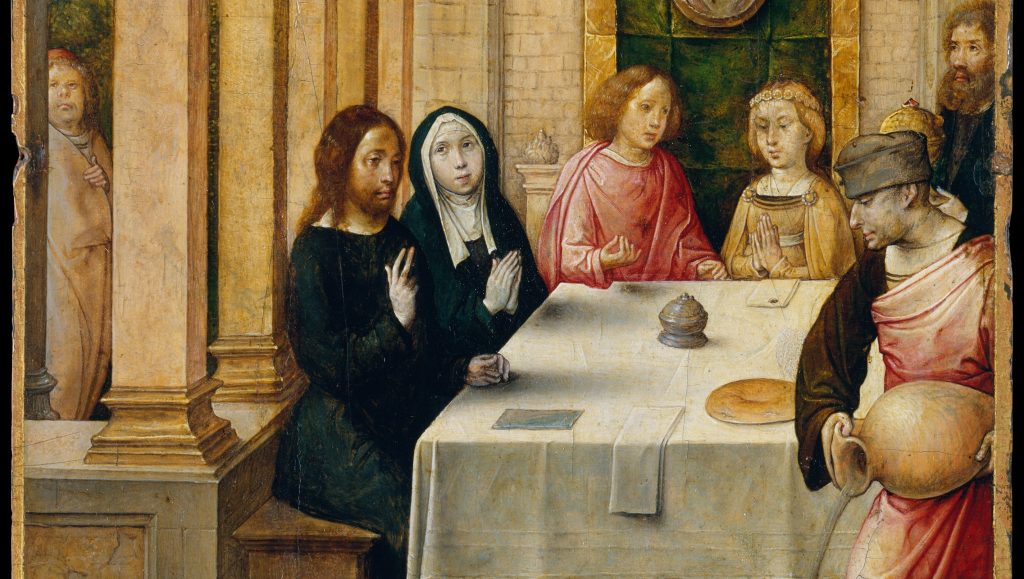Gen. 2:18-24 / Ps. 128:1-6 / Heb. 2:9-11 / Mk. 10:2-16
In today’s Gospel, the Pharisees try to trap Jesus with a trick question.
The “lawfulness” of divorce in Israel was never at issue. Moses had long ago allowed it (see Deut. 24:1-4). But Jesus points his enemies back before Moses, to “the beginning,” interpreting the text we hear in today’s First Reading.
Divorce violates the order of creation, he says. Moses permitted it only as a concession to the people’s “hardness of heart” — their inability to live by God’s covenant Law. But Jesus comes to fulfill the Law, to reveal its true meaning and purpose, and to give people the grace to keep God’s commands.
Marriage, he reveals, is a sacrament, a divine, life-giving sign. Through the union of husband and wife, God intended to bestow his blessings on the human family — making it fruitful, multiplying it until it filled the earth (see Gen. 1:28).
That’s why today’s Gospel moves so easily from a debate about marriage to Jesus’ blessing of children. Children are blessings the Father bestows on couples who walk in his ways, as we sing in today’s Psalm.
Marriage also is a sign of God’s new covenant. As today’s Epistle hints, Jesus is the new Adam — made a little lower than the angels, born of a human family (see Rom. 5:14; Ps. 8:5-7). The Church is the new Eve, the “woman” born of Christ’s pierced side as he hung in the sleep of death on the cross (see Jn. 19:34; Rev. 12:1-17).
Through the union of Christ and the Church as “one flesh,” God’s plan for the world is fulfilled (see Eph. 5:21-32). Eve was “mother of all the living” (see Gen. 3:20). And in baptism, we are made sons and daughters of the Church, children of the Father, heirs of the eternal glory he intended for the human family in the beginning.
The challenge for us is to live as children of the kingdom, growing up ever more faithful in our love and devotion to the ways of Christ and the teachings of his Church.

